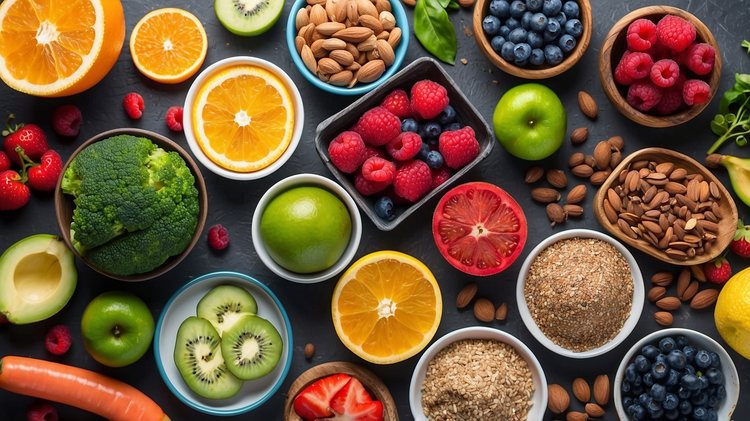Diets for Seniors, Healthy Food Plans Without Pills
Maintaining a balanced diet becomes increasingly important as we age, but finding a sustainable, healthy eating plan can be challenging. A well-rounded diet can improve energy levels, boost immune function, and support well-being. This guide explores effective food-based diets for seniors, offering practical meal ideas and suggestions for those looking to improve their health without relying on supplements or pills.

Mediterranean Diet: A Heart-Healthy Choice
The Mediterranean diet is renowned for its focus on whole foods, such as fruits, vegetables, legumes, and healthy fats like olive oil. This diet is particularly beneficial for heart health and has been associated with a reduced risk of chronic diseases. Seniors following the Mediterranean diet can enjoy flavorful meals such as roasted vegetables, fresh salads, and grilled fish, all of which are simple to prepare.
Meals on this diet emphasize natural, nutrient-rich ingredients, making it easier to maintain a healthy weight and support overall longevity. By incorporating plenty of fiber, lean proteins, and healthy fats, the Mediterranean diet offers a delicious, easy-to-follow approach to eating well.
DASH Diet: Managing Blood Pressure Naturally
The DASH (Dietary Approaches to Stop Hypertension) diet is specifically designed to help lower blood pressure and improve cardiovascular health. It focuses on eating plenty of fruits, vegetables, whole grains, and lean proteins, while limiting sodium, sugar, and saturated fats. For seniors, this diet offers a natural way to manage blood pressure without relying on medications.
Meal plans for the DASH diet can include options like whole grain cereals, baked chicken with quinoa, and mixed vegetable stir-fry. The key to success with this diet is balance: portion sizes are carefully considered, and meals are prepared with minimal salt to support heart health.
Plant-Based Diet: Promoting Longevity and Vitality
A plant-based diet centers around fruits, vegetables, legumes, nuts, and seeds, with little to no animal products. This diet is rich in fiber, vitamins, and antioxidants, which can help reduce inflammation and support a healthy digestive system. For seniors, following a plant-based diet can contribute to improved mobility, reduced joint pain, and overall vitality.
Practical meal ideas include lentil soups, vegetable stews, and grain bowls with a variety of fresh ingredients. This diet allows for plenty of customization, so seniors can choose meals that suit their tastes while ensuring they get the nutrients they need to stay healthy and active.
Low-Carbohydrate Diet: Supporting Weight Management
Low-carbohydrate diets, such as the ketogenic diet, have gained popularity for their ability to support weight loss and stabilize blood sugar levels. For seniors who may be struggling with weight management or diabetes, reducing carbohydrate intake can help improve insulin sensitivity and promote fat loss.
Meal options for this diet focus on high-protein foods, healthy fats, and non-starchy vegetables. Popular dishes include avocado salads, grilled chicken with leafy greens, and baked salmon with steamed broccoli. This approach can be particularly helpful for seniors looking to maintain energy levels throughout the day without experiencing blood sugar spikes.
Mind Diet: Protecting Cognitive Function
The MIND (Mediterranean-DASH Intervention for Neurodegenerative Delay) diet combines aspects of the Mediterranean and DASH diets, with a focus on protecting brain health. This diet emphasizes foods like leafy greens, berries, nuts, and fish, which are rich in antioxidants and omega-3 fatty acids—nutrients that support cognitive function.
Seniors following the MIND diet can enjoy brain-boosting meals such as spinach and berry salads, oatmeal with walnuts, and grilled trout with roasted vegetables. The goal of this diet is to provide nutrients that help maintain memory and prevent age-related cognitive decline, making it a valuable option for older adults who want to stay sharp.
Conclusion
Choosing the right diet is a crucial step in maintaining health and well-being as we age. Each of the five diets mentioned here offers unique benefits, from improving heart health to supporting cognitive function. By focusing on whole, nutrient-dense foods, seniors can enjoy a variety of delicious meals that not only taste good but also support their long-term health goals. These food plans require no pills or supplements—just the power of healthy, balanced eating.




